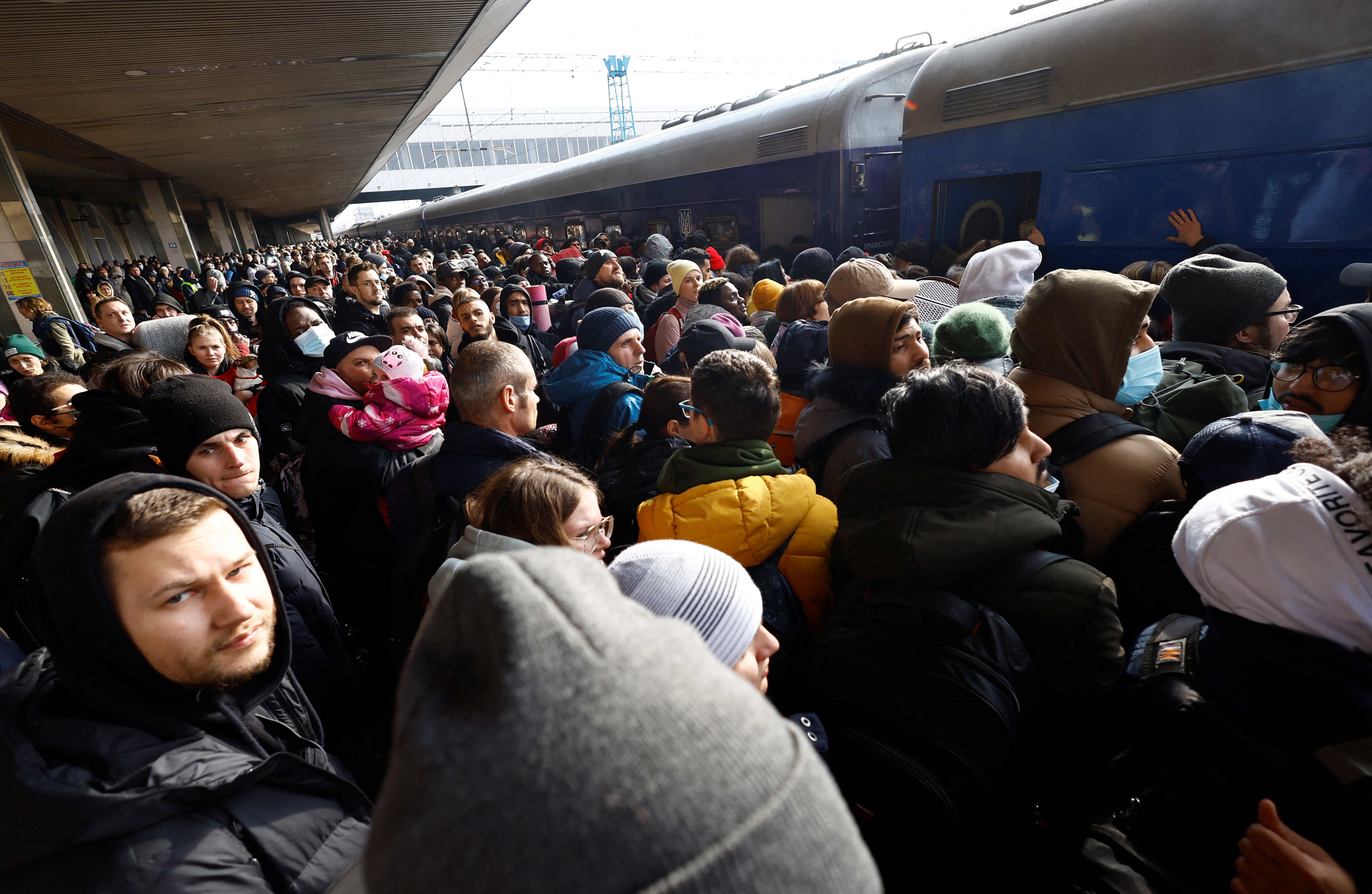His decision to invade Ukraine has made the task of criticising Nato difficult, but the reality is that Nato is not innocent
I am happy to don sackcloth and ashes for getting Russia’s intention to invade Ukraine wrong. A couple of weeks ago I surmised that Russia was bluffing in amassing troops by land and an Armada in the Black Sea. I believed wrongly – naively even – that the threat of the use of force was sufficient to prevent Ukraine from joining Nato, but it now looks as though President Vladimir Putin’s calculus was motivated more by revanchism than by deterrence.
The so-called special military operation Russia unleashed on Ukraine last Thursday is in breach of international law that prohibits the use of force except in self-defence. I thought that a state is entitled to threaten force in self-defence including for strategic reasons to prevent a neighbouring state from joining an alliance it regards as a threat to its security.
Unfortunately, I was mistaken, and now that innocent people are dying and fleeing hearth and home, abandoning their communities and livelihoods as a result of Russia’s invasion, the least I can do is condemn it unequivocally in the strongest terms.
But Russia and Nato are also on a slippery slope that could easily slide into a wider conflict and if that happens the risk of a nuclear exchange and mutually assured destruction (MAD) is very real. Hence the need for a balanced approach to the causes of the problem in Ukraine in its wider context.
The problem at the moment is Russian aggression in Ukraine but that does not mean that Nato bears no responsibility for the way the problem evolved as a byproduct of Nato’s inexorable and irresponsible expansion eastwards.
Nato was also irresponsible in encouraging the Ukrainians to insist on Nato membership knowing it would leave them out to dry if Russia invaded. They should have impressed upon the inexperienced Ukrainian president Volodymyr Zelenskiy that joining Nato was not going to happen, and that Ukraine would not be invited to join so long as it was an issue for Russia and to avoid a Russian invasion at all costs as Nato would not assist militarily in any circumstances.
In Russian eyes, Nato became arrogant and evolved into an institutionally aggressive alliance after the collapse of the Soviet Union in 1991. To Vladimir Putin, who had to pick up the pieces after the drunken presidency of Boris Yeltsin in the 1990s, Nato ceased to be a defensive alliance and became potentially aggressive towards Russia.
Before its collapse the Soviet Union defeated Nazi Germany in the East at the end of World War II and swept across East Europe in the process. Paraphrasing Churchill’s speech at Fulton, Missouri in 1946, from the Baltic to the Adriatic Sea an Iron Curtain descended across Europe. Nato and the Warsaw Pact were two alliances created to keep the balance of power between the two blocs that saw each other as aggressive towards their own: the USA provided a nuclear umbrella protecting Nato members in the West, and Russia and the Warsaw Pact members in the East.
When the Soviet Union collapsed in 1991 the Warsaw Pact disbanded the same year whereas Nato continued and enlarged to take in most of the former countries of the Warsaw Pact. With the Soviet Union roundly defeated, the American historian Francis Fujiyama declared the end of history, but Nato expanded eastwards after history ‘ended’ with no state or group of states to defend against.
The guiding principle of Nato as a collective defence alliance is that an attack on one is an attack on all member states, which is accepted without question but which is strange if not crypto aggressive. Why would the people of one member state want to engage in war with other far away states of which they know little? And what if the Nato member state attacked is the state at fault for the attack on it? And most importantly what if the war required of member states is a nuclear war?
As a young KGB officer in East Germany Vladimir Putin saw firsthand the collapse of the Soviet Union and it is not surprising that he has called it “the greatest geopolitical catastrophe of the century”. Just like Winston Churchill lamented the loss of the British Empire, Vladimir Putin still laments the loss of Russian power in Europe.
Of course he is being demonised in the West as the devil incarnate over his decision to invade Ukraine, which serves him right for blundering into an unnecessary war with a brother nation and threatening nuclear war on any country that interferes with his invasion. As British Defence Minister Ben Wallace put it “Putin has gone full tonto over Ukraine.”
However, Russian concerns about Nato expansion to the borders of Russia from the Baltic to the Black Sea are very real and, although Putin’s decision to invade Ukraine has made the task of criticising Nato difficult, the reality is that Nato is not innocent.
The fact that Nato defines itself as a defence alliance does not cut it with the Russians whose perspective is a vast land mass and a history of having to defend it.
Nato’s expansion eastwards into Russia’s geopolitical penumbra was a failure of insight not just into Russia’s legitimate security concerns but into her psyche too. Many of the countries that border Russia in East Europe and the Black Sea that joined Nato have issues with Russia – demographic, historical, territorial and invariably psychological. What defensive purpose does their membership serve? So far as I can see all it achieved was to alienate Russia.
It looks as though Nato ignored the well-known Russian proverb that if you invite a bear to dance it is not you who decides the dance is over. It’s the bear.
Alper Ali Riza is a queen’s counsel in the UK and a retired part time judge







Click here to change your cookie preferences